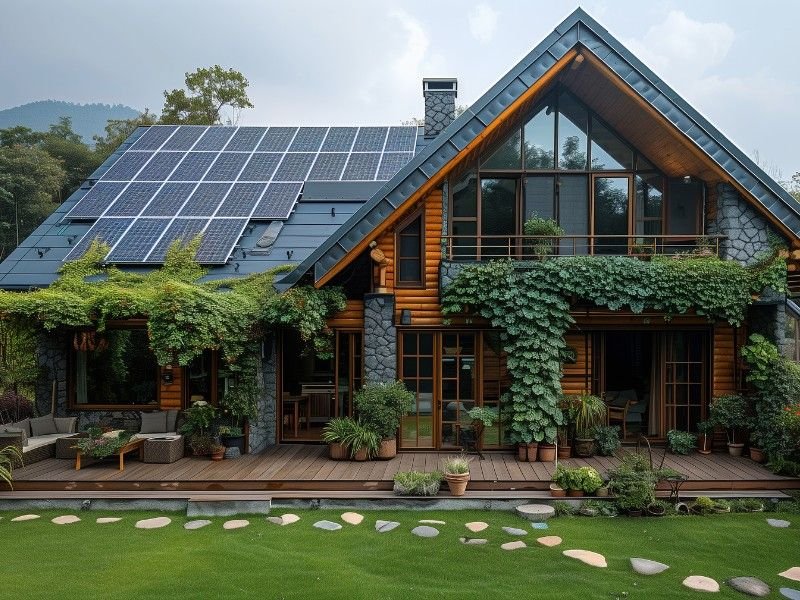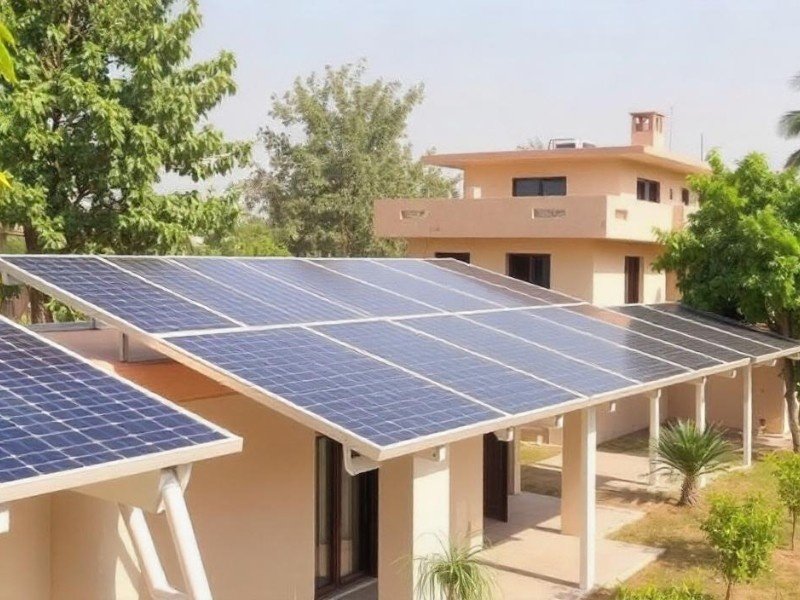The demand for solar energy in India has seen a significant rise, driven by environmental concerns and the desire to reduce electricity bills. Among the various solar solutions available, a 5 kW solar plant stands out as a popular choice for medium to large homes. This system offers a balanced blend of power generation capacity and affordability, making it a practical investment for homeowners looking to harness the sun’s energy.
A 5 kW solar plant is ideal for households with moderate to high electricity consumption. It can efficiently power most home appliances, including lights, fans, refrigerators, and even air conditioners.
In this blog, we’ll break down the costs associated with installing a 5 kW solar plant, including the price of components, installation, and maintenance. We’ll also explore the factors that influence these costs, such as location and government subsidies, to help you make an informed decision.
What is a 5 kW Solar System?
There are two primary types of ground-mounted solar panel systems: fixed-tilt and tracking systems. Each has unique benefits suited to different energy requirements and geographical locations.
The Return on Investment (ROI) is a key concept when it comes to solar power. The ROI measures how long it will take for your investment in solar panels to pay off in terms of savings on electricity bills. Over time, the savings often exceed the initial cost, making solar panels a smart long-term investment.
Detailed Cost Analysis of 5 kW Solar Plant in India
The cost of a 5 kW solar system in India typically ranges from INR 2.5 to 4 lakhs. This price includes the cost of solar panels, inverters, mounting structures, wiring, and installation. Maintenance costs are relatively low, as solar systems are designed to be durable, requiring only periodic cleaning and inspection.
Subsidies and Financial Incentives for 5 kW Solar Systems
The Indian government offers various subsidies to promote the adoption of solar energy. By taking advantage of these subsidies, you can reduce the upfront cost of your 5 kW solar system by up to 40%. Central and state-specific programs often cover a significant portion of the total cost, making solar energy more affordable.
Is a 5 kW Solar System Right for Your Home?


Which is Better? On-Grid, Off-Grid, or Hybrid Solar Systems
Maximising Savings with a 5 kW Solar System
Investing in a 5 kW solar system can result in significant long-term savings. Over its 25-year lifespan, the system can save you nearly INR 15-20 lakhs, depending on your location and electricity rates.
How Soon Can You Recover Your Investment?
The payback period for a 5 kW solar system in India is typically between 4 to 6 years, after which the electricity generated is essentially free, barring minor maintenance costs.
Many homeowners in India have reported substantial savings after installing a 5 kW solar system, particularly in states with high electricity tariffs. These savings can often exceed initial expectations, making solar a lucrative investment.




